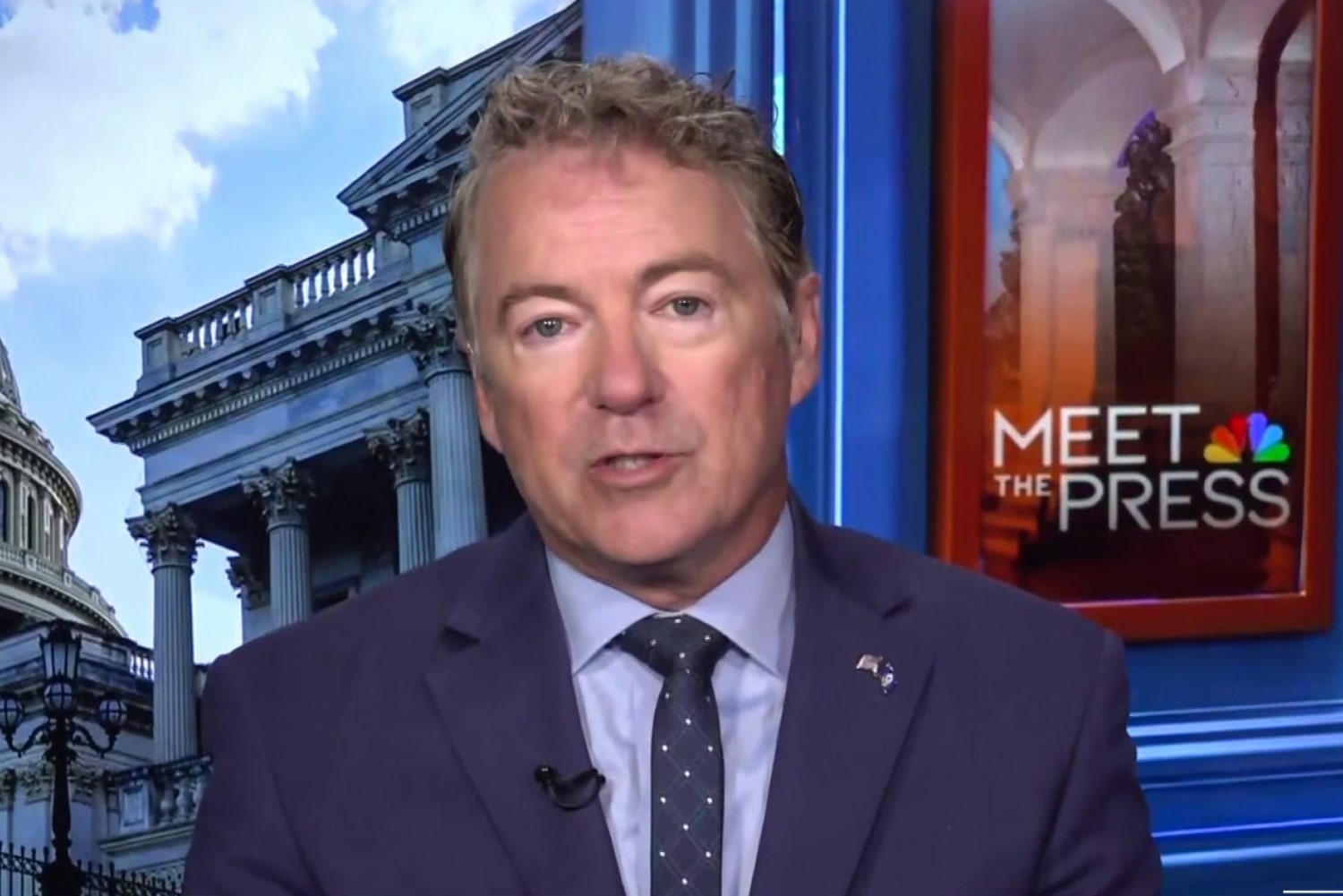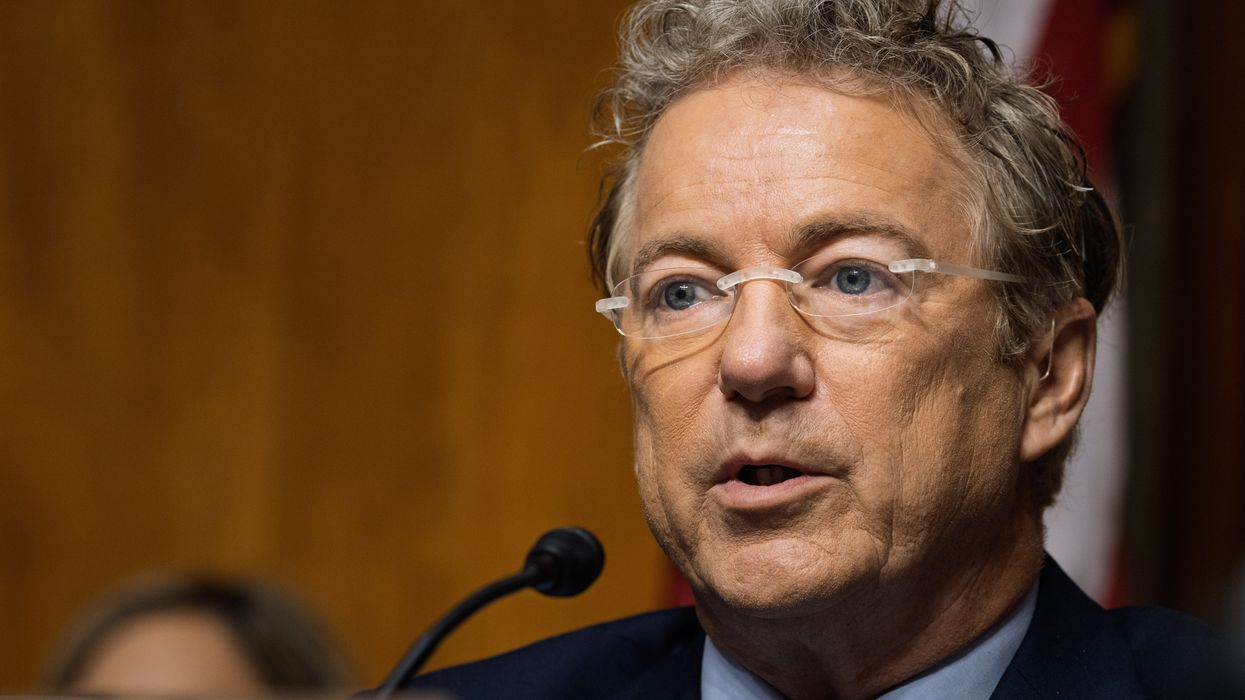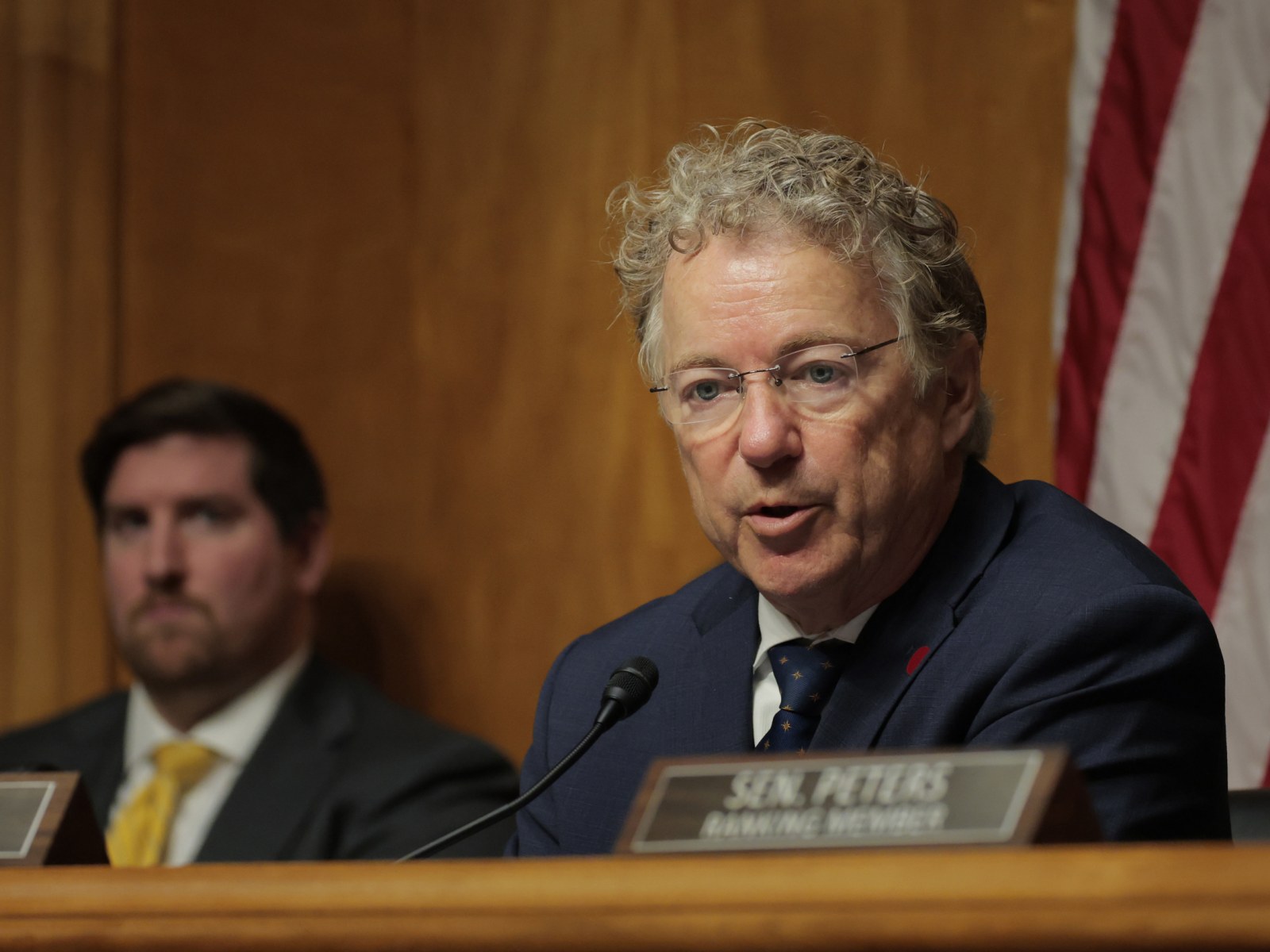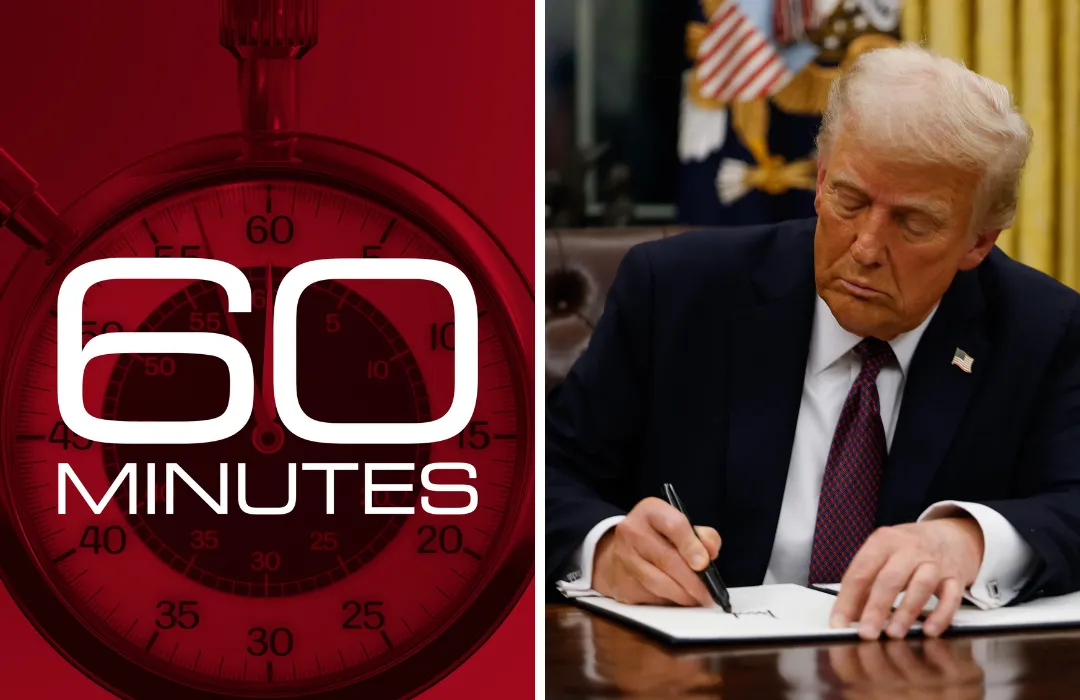Republican Senator Rand Paul ignited a political firestorm this week after delivering a scathing rebuke of President Donald Trump’s recent military actions in the Caribbean.
Appearing on NBC News’ Meet the Press, Paul condemned what he described as “murderous strikes” that violated the moral and constitutional principles upon which the United States was founded.
His remarks shocked both parties, sending tremors through conservative circles and enraging many within the MAGA base that continues to fiercely defend Trump’s decisions.
Paul’s criticism centered on reports that U.S. forces, under Trump’s directive, carried out a series of drone and naval strikes targeting vessels allegedly linked to drug trafficking operations in the Caribbean Sea.
Trump, who justified the attacks as part of his ongoing campaign to “eliminate the drug menace,” claimed that those targeted were smugglers moving narcotics toward the United States.
Yet, as Paul pointed out, no concrete evidence has been presented to substantiate those claims.
“You have to present evidence,” Paul said firmly during the interview. “So all these people have been blown up without us knowing their name, without any evidence of a crime.”
His words struck with the force of an accusation, implying that the President may have authorized extrajudicial killings without congressional approval, legal review, or transparent justification.

The senator’s concern extended beyond the immediate moral implications of the strikes.
He warned that such actions threaten to redefine America’s relationship with international law and its own constitutional values.
“When the United States kills someone,” he argued, “you really need to know someone’s name, at least. You have to accuse them of something.”
The statement reflected a deep unease about the increasing use of lethal force outside traditional combat zones, particularly in operations conducted without public oversight.
Trump’s office has not released the names of those killed or any verifiable evidence proving they were drug smugglers.
This absence of transparency has fueled speculation that many of the victims could have been civilians.
The most alarming of these claims came from Colombian President Gustavo Petro, who alleged that one of the men killed, identified as 46-year-old fisherman Alejandro Carranza, was an innocent citizen whose small fishing boat had been mistakenly targeted.
Petro described Carranza as a “lifelong fisherman,” insisting there was no indication of involvement in criminal activity.

If Petro’s account is accurate, Trump’s Caribbean campaign could amount to a series of unlawful killings.
“It appears increasingly likely,” said Paul, “that we are murdering random people with the U.S. military and smearing them as narcotraffickers to excite the base.”
His statement was both an accusation and a lament — a warning that the reckless use of military power could destroy America’s credibility and moral authority abroad.
Paul’s language was unusually sharp for a sitting Republican senator addressing a leader who remains deeply influential within his party.
Yet his remarks were consistent with his long-held belief in constitutional restraint and non-interventionist foreign policy.
“If our policy now is to blow up every ship we suspect or accuse of drug running, that would be a bizarre world in which 25% of the people might be innocent,” he said.
His tone was incredulous, emphasizing both the impracticality and inhumanity of waging war by suspicion alone.
The senator also noted the geographical absurdity of the strikes, pointing out that the targeted boats were “2,000 miles away from us.”

He argued that if the vessels were indeed carrying narcotics, they were likely en route to destinations near Venezuela rather than the United States.
“The idea they’re coming here is a huge assumption,” Paul said. “You have to present some proof. It is the difference between war and peace. In war, though, you don’t ask people’s name.”
His comments underscored the slippery moral slope between policing and warfare — and how easily the line can be blurred when military power is wielded without restraint.
“In war, you don’t ask people’s name,” Paul repeated, his tone darkly reflective. “That’s exactly why we must not let war become our default state.”
The senator’s appearance on Meet the Press was not merely a critique of one operation; it was an indictment of an entire philosophy of governance that places unilateral power in the hands of the executive.
“The president shouldn’t do this by himself,” Paul said, echoing the constitutional requirement that only Congress has the authority to declare war.
“If Trump wants to go to war with Venezuela, as it appears increasingly likely, he should go before Congress and formally ask for a declaration of war.”
Paul’s call for congressional oversight highlighted the enduring tension between legislative authority and executive ambition — a struggle that has defined much of modern American foreign policy.

From drone strikes in the Middle East to covert operations in Africa, successive presidents have expanded the scope of military action without formal declarations of war.
Now, with Trump’s alleged Caribbean campaign, Paul fears that precedent has been pushed to a breaking point.
“The president shouldn’t do this at all,” he added bluntly. “The last thing America needs is another pointless, evil war.”
Those final words carried moral weight. They were not the calculated remarks of a politician seeking attention but the solemn warning of a statesman who sees a nation drifting from its founding principles.
In invoking America’s “tradition,” Paul reminded the audience of a core belief: that the United States must act as a moral example to the world, not as a lawless empire.
“These actions go against all of our tradition as a nation,” he said earlier in the interview. “We have always valued due process, evidence, and accountability.”
To Paul, the issue is not simply about policy but identity — about what kind of country the United States chooses to be.
A nation that prizes liberty and justice cannot simultaneously engage in acts of state violence without oversight.

“It’s not enough to say we think someone’s guilty,” he insisted. “If we abandon our standards, then we lose the very thing we’re trying to defend.”
The senator’s words reverberated through Washington, earning both praise and condemnation.
Civil libertarians and human rights advocates applauded his courage in speaking out against what they viewed as unlawful killings.
Conservative pundits, however, accused him of undermining national security and providing ammunition to America’s enemies.
Some members of the MAGA-aligned media mocked him as “soft” or “naïve,” while others labeled his comments as a betrayal of party unity.
Despite the backlash, Paul remained unmoved. His office later released a statement reaffirming his belief that “no president, regardless of party, has the authority to wage undeclared war or execute citizens of another nation without clear evidence or congressional consent.”
The message was unmistakable: principle must come before politics.
As outrage grew, questions continued to mount about the nature and scope of Trump’s strikes.
Reports from the Caribbean described scenes of chaos — fishing villages grieving the loss of local men, destroyed boats scattered along coastal waters, and families demanding answers.
The lack of transparency has only deepened suspicion. For many, Paul’s words gave voice to an unease that had been building beneath the surface — the fear that America’s military power was being used for spectacle rather than security.
Paul’s defiance also laid bare the growing divide within the Republican Party.
While many GOP lawmakers continue to embrace Trump’s aggressive brand of populism, a small but principled faction, led by figures like Paul, remains committed to constitutional conservatism and non-intervention.
His willingness to confront Trump on moral and legal grounds, especially over the use of military force, could mark a turning point in how the party debates foreign policy going forward.
The senator’s warning about the difference between “war and peace” was more than a rhetorical flourish.
It was a reminder of how fragile that difference can be in an era when military technology allows presidents to wage war from afar, often with little public knowledge or accountability.
Drones and precision strikes may promise surgical efficiency, but as Paul noted, “efficiency without justice is tyranny by another name.”

In the closing moments of his interview, Paul’s tone softened but his message remained firm.
“I believe in America’s strength,” he said, “but strength means restraint. It means moral courage, not just military power. We can’t become what we despise in the name of defending freedom.”
His appeal for restraint, humility, and adherence to constitutional process echoed through a political landscape consumed by anger and polarization.
Whether his words will change minds within his own party remains uncertain. But in an age when outrage often drowns out reason, Rand Paul’s calm insistence on evidence, legality, and moral clarity offered a rare moment of principle amid the noise.
As the interview concluded, one thing became clear: Paul’s stand against Trump’s Caribbean strikes was not simply about one policy or one president.
It was about the soul of a nation — about whether America still recognizes the limits of its own power.

His warning was not only to Trump but to the country itself. “If we start killing people without names, without crimes, and without Congress,” he said, “then we’ve lost more than our way. We’ve lost who we are.”




